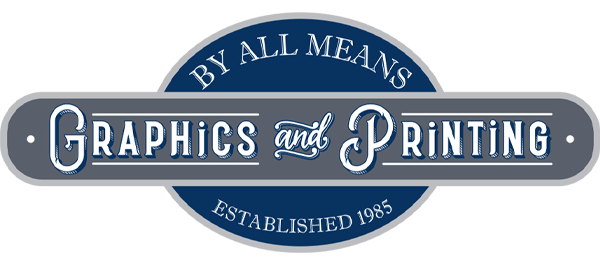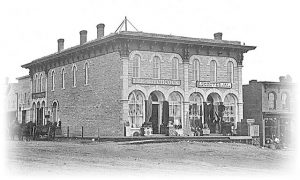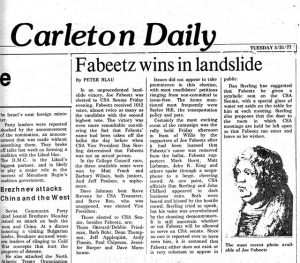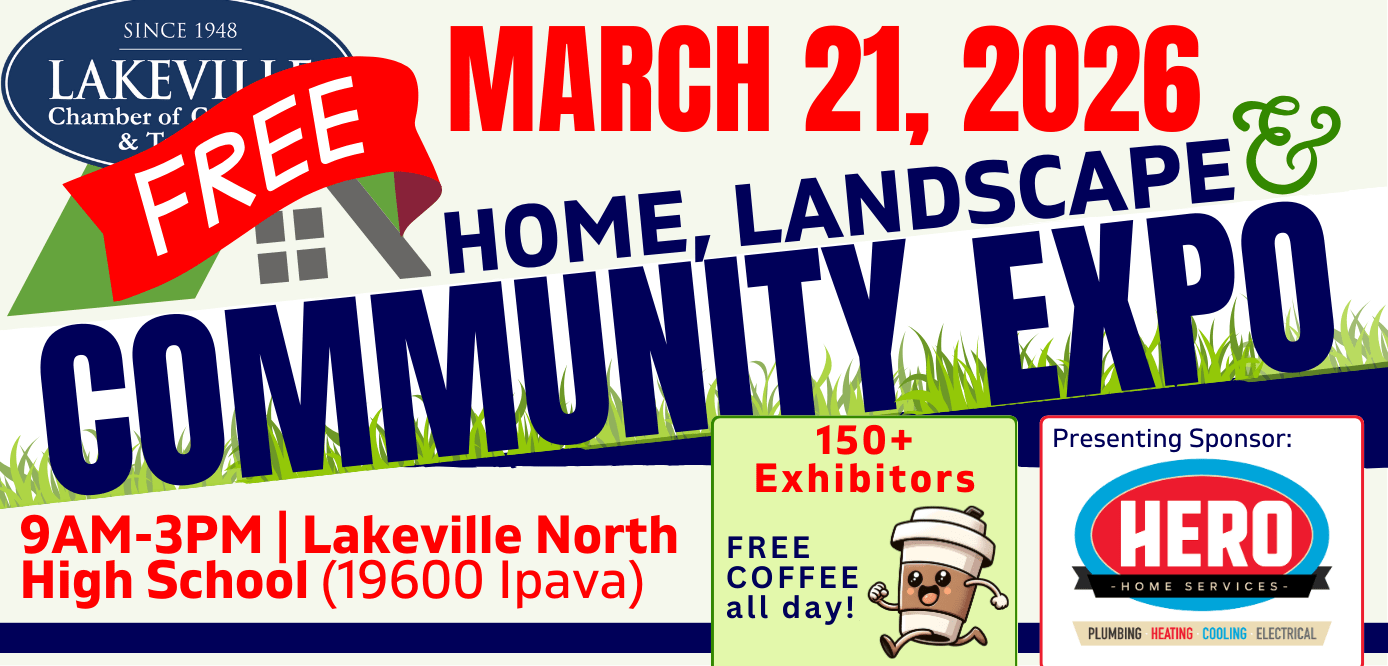“Anyone who thinks Northfield is not a good show town should have seen the hundreds of people who could not get into the opera house Saturday night because it was full. Seats and standing room all taken,” according to the “Heard on the Square” feature of the Jan. 26, 1895, Northfield News. The writer could not resist a dig at the town: “I have made up my mind that the people are particular about what kind of show is to be given.” Well-known opera companies might bring in an audience of 50 or 60 people, but “let a Kickapoo Indian Medicine Company show here and the result is a crowded house at popular prices.” The main attraction at this Jan. 19 show? “A simple wood-sawing contest between a number of women. This might be introduced into any show and a paying audience assured,” joked the writer.
The town’s other newspaper, the Northfield Independent, had promoted the matinee and evening shows in two short notices published Jan. 17. One said, “If you have seen a ladies wood-sawing contest you would pay any money to see one again; if not, come and see this one and you will never forget it as long as you live. Admission, adults 15 cents; children 10 cents.” The other, announcing the Saturday matinee at 2 p.m., said, “The house will be darkened and all lamps lighted to give full night effect. All children should come and spend a pleasant afternoon, Admission, 5 cents.”
So, just what was this Kickapoo Indian Medicine Company which created such a stir in Northfield in January of 1895?

John E. “Doc” Healy and Charles H. “Texas Charlie” Bigelow formed the Kickapoo Indian Medicine Company in 1881 and eventually established a four-story “Principal Wigwam” building in New Haven, Conn., from which they sent out entertainment troupes to promote Kickapoo products all over the United States and abroad. They took the memorable name “Kickapoo” from a minor tribe, dubbed this tribe “the most noted of all Indian medical men” and soon recruited Indians from many other tribes to take on the name Kickapoo and hawk the remedies made from “blood root, feverwort, sassafras, slippery elm, white oak bark, wintergreen, yellow birch bark, dock root, sarsaparilla” and other herbs. The renowned Wild West showman Buffalo Bill himself endorsed Kickapoo Indian Sagwa, saying, “It is the only remedy the Indians ever use, and has been known to them for ages. An Indian would as soon be without his horse, his gun or blanket as without Sagwa.” Of course, Sagwa was a made-up name, unknown to any Native American. (Al Capp later popularized this as “Kickapoo Joy Juice” in his comic strip “Li’l Abner.”)
There is no record of what was featured in addition to the distaff wood-sawing contest at the Kickapoo Indian Medicine Company show in Northfield in 1895. But typical entertainment in a show of that era would include vaudeville-type fare such as singing, dancing, acrobatics, trained animals and skits. Shows often opened with several Native Americans sitting in front of a painted backdrop of an Indian scene, dramatically illuminated by torches. A long-haired “Indian agent” or “Professor” clad in buckskins would introduce the supposed Kickapoo tribe members, one of whom would give an eloquent oration in his own language (helpfully translated by the pitchman) about the secret and sacred origins of the remedies about to be shared with the audience. Salesmen, doubling as performers, appeared with baskets of bottles and a shill would buy one, take a swig and rave about the miraculous cure that had just taken place. After sales were made, a cry would go up, “All sold out!” and the salesmen would go to see if by chance there were other bottles backstage, as the entertainment resumed. The pitch-man would return several times to tout the amazing proper-ties of the Kickapoo products, as audience members scram-bled to make a purchase before the stock was gone, amid sounds of tom-toms and war whoops from the performers.
Many other medicine shows were popular back then, with peddlers representing themselves as Orientals or Quakers, as well as Indians. It is not known if the exotic princess,
Little Lotus Blossom, made it to Northfield, but she was quite well-known for selling Tiger Fat, a salve, and Vital Sparks (the 19th century equivalent of Viagra), which was labeled “God’s Great Gift to MEN” and was said to have originated in Outer Mongolia. She dressed in a mandarin coat and Chinese skull cap for this impersonation, but later donned a mortarboard and gown and billed herself as Madame V. Pasteur, selling herbal medicines that she later admitted she mixed up in hotel bathtubs. Violet Blossom, called the Queen of Female Pitch Doctors, was actually a Minnesota farm girl.
Then there is the case of the long-haired charlatan who posed as a medical doctor and appeared at many Defeat of Jesse James Days under the name “Dr. Visty.” Dr. Visty’s “Vitalic Elixir” was said to cure dyspepsia, liver complaints, pimples, PMS,
 impotence, kidney disease, dizziness, affairs of the heart, zits, rheumatism, headaches, lung trouble, catarrh, impure blood and neuralgia. Truth in labeling laws required Dr. Visty to list the contents on the bottles: “Apple cider vinegar and Northfield tap water.” Still, many fools and their money were parted during Dr. Visty’s visits to town. He has not been seen for a while and there may still be a warrant out for his arrest. I am told that Northfield attorney David Hvistendahl stands ready to give Dr. Visty legal advice, if he is apprehended.
impotence, kidney disease, dizziness, affairs of the heart, zits, rheumatism, headaches, lung trouble, catarrh, impure blood and neuralgia. Truth in labeling laws required Dr. Visty to list the contents on the bottles: “Apple cider vinegar and Northfield tap water.” Still, many fools and their money were parted during Dr. Visty’s visits to town. He has not been seen for a while and there may still be a warrant out for his arrest. I am told that Northfield attorney David Hvistendahl stands ready to give Dr. Visty legal advice, if he is apprehended.
Information for this story was found in the Northfield Historical Society archives. A recommended source on this topic is “The Golden Age of Quackery” by Stewart Holbrook.







